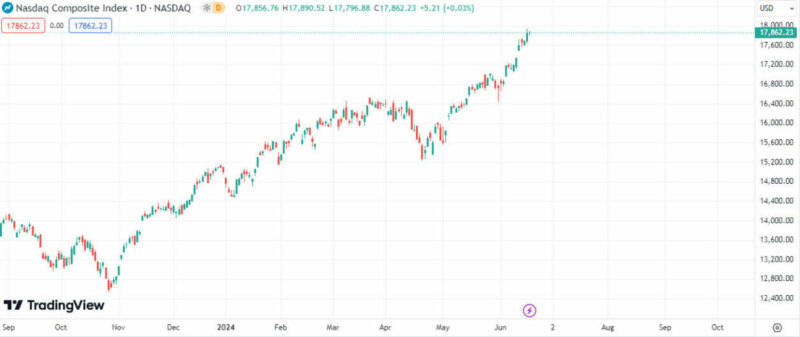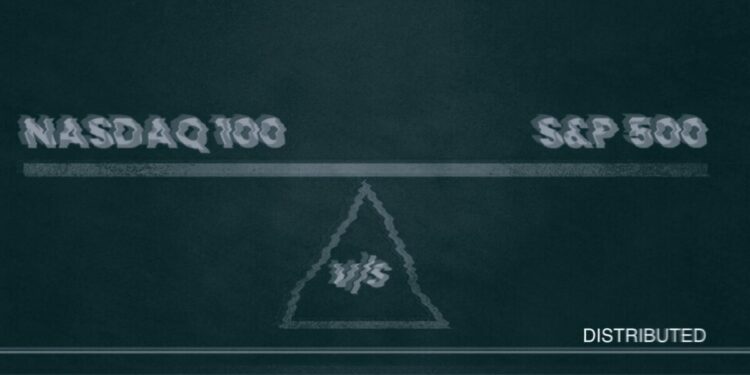The S&P 500 and the Nasdaq Composite closed at new record highs on Tuesday as investors digested the latest economic data and mixed comments from Federal Reserve officials. The S&P 500 index rose 0.3% to 5,487; the technology-heavy Nasdaq ticked higher to 17,862, while the Dow Jones Industrial Average advanced 0.2% and closed at 38,834 points.

Financials and technology companies were the top-performing sectors, while communication services experienced the largest decline. US stock markets are closed this Wednesday for Juneteenth but according to Sam Stovall, chief investment strategist of CFRA Research in New York, even though investors are playing it safe, we will continue to see all-time highs in the upcoming days.
See Related: The S&P 500 And Nasdaq Indexes Reached Record Highs This Wednesday. Could A Pullback Be Imminent?
Earnings Growth And US Stocks
Robust earnings growth has fueled the US stocks and positive Q1 earnings results provide further support to the ongoing bullish view, even as we navigate the Fed and underlying economic conditions. The US economy remains resilient and regarding the latest economic news, retail sales in the US edged up 0.1% last month following April’s downwardly revised 0.2% decline.
Another positive information is that US industrial production rose more than expected in May as manufacturing output returned to growth after two months of declines. However, Boston Fed President Susan Collins said this week that even though recent inflation data has been “encouraging,” the process of lowering inflation may take longer than expected. Boston Fed President Susan Collins said :
“The data suggest an economy with demand and supply coming into better balance, as required to restore price stability. However, this process may just take more time than previously thought. It is too soon to determine whether inflation is durably on a path back to the 2% target.”
Joseph Kalish, chief global macro strategist at Ned Davis Research (NDR), forecasts that there will be only one Federal Reserve rate cut this year, which certainly poses a risk for the US economy. This situation could negatively affect stock prices, and it is also important to mention that high interest rates make fixed-income investments, such as bonds, more attractive compared to stocks. As a result, investors may shift their money away from stocks, leading to a decrease in stock prices.



